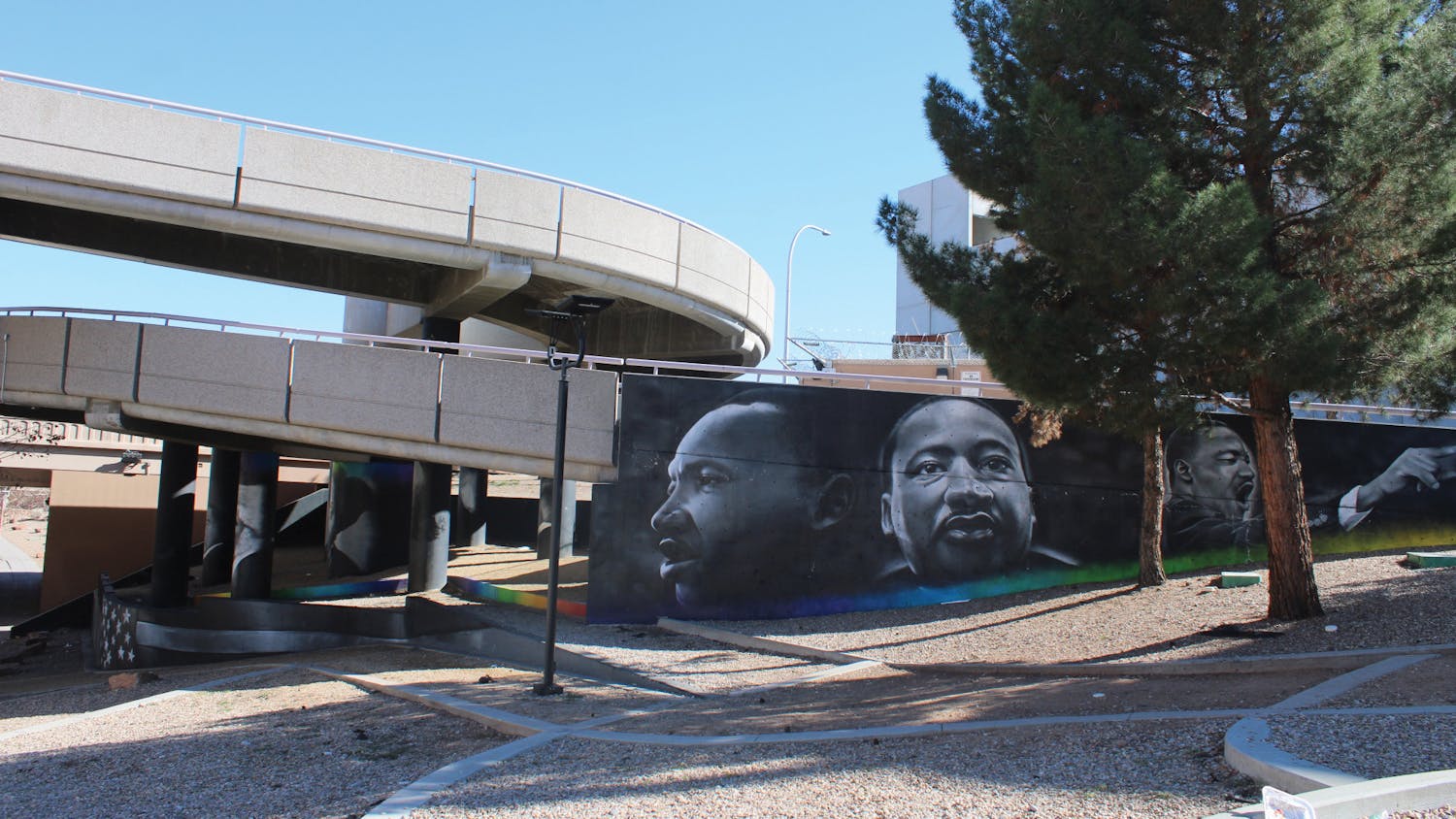As the state of New Mexico consistently breaks 3,000 new COVID-19 cases daily attributed to the new, highly infectious omicron variant, the University of New Mexico has no current plans to move to remote learning for the spring 2022 semester. Even as the school tightens up its COVID-19 protocols, many faculty members still feel apprehensive about the recent return to an in-person semester, which started on Tuesday.
Meagan Vigus, a teaching associate in the linguistics department and member of the United Graduate Workers of UNM, said her primary frustrations with the in-person return lie in the inadequate and chaotic communication between the University and its faculty, particularly in the recent announcement that UNM is requiring at least three-ply medical-grade masks indoors.
“I think I actually got an email on the student side before I got an email as an instructor about the new mask requirements ... It’s a bit ridiculous, updating these requirements at the last minute and then not giving us materials that we need to do our job,” Vigus said.
It will be much more expensive to continually replace these masks, a problem only worsened by the fact that graduate workers at the UNM are paid poverty wages, according to Vigus. Officials from the University told her via email correspondence that they would not be providing masks to faculty for daily use.
Summer Hayek, a lecturer at UNM’s medical school, is torn between the health impact a major outbreak on campus would have and the extreme difficulty of teaching her courses remotely.
“I’m more concerned with (students) taking (COVID-19) home to their elderly relatives or people who can’t get vaccinated. I’m worried about it leading to a huge outbreak where the whole class has to cancel at the last minute,” Hayek said. “At the same time, pedagogically, I know my students learn better when they’re in person, and so it is really difficult and very time consuming to design assessments that can keep academic integrity levels high.”
Jeff Horwat, part-time associate professor of art education, started his first year teaching after spending two years teaching remotely at Indiana University South Bend. He is hopeful that the current COVID-19 protocols will be sufficient in assuring that his students will be able to do vital observations and field training.
“Our fingers are crossed that local (K-12) schools will remain open so that our students can have those experiences. I think that’s a big concern for all kinds of teacher education programs,” Horwat said.
Horwat said he is most worried about having to enforce COVID-19 protocols in person for the first time.
“I’ve been teaching online. I never had to deal with that. I never had to enforce any of those policies or anything, and I don’t know what the kids at UNM are like — if they’re kind of on board with it, or am I going to have people testing that boundary?” Horwat said.
One of Hayek’s courses has over 130 students, and she hopes the lecture hall will provide enough space for proper social distancing.
Lindsay Morrone, another linguistics teaching assistant and treasurer of the United Graduate Workers of UNM, said the University has failed to adequately address the needs of deaf and hard-of-hearing students in their recent mask upgrade mandate.
Get content from The Daily Lobo delivered to your inbox
“I have a student in my class who will need me to wear a window mask. So that’s an accommodation for, for example, deaf and hard-of-hearing students, and I just heard today from the deaf and hard-of-hearing student services that they were not told about this mask requirement by UNM in advance, so they were left scrambling to get us the appropriate masks right now,” Morrone said.
The masks that were previously purchased for instructors with deaf and hard-of-hearing students did not meet the University’s new standards, according to Morrone. They are currently being offered single-use window masks and being advised to reuse them in order to stretch them out over the first two weeks, as the window masks they need are currently incredibly difficult to source.
As a teaching assistant, Vigus has no control over whether the classes she is assigned to teach are remote or not, and she said the only guidance instructors have been given on what to do if they become infected is that they are “allowed to teach remotely for two weeks, while we have COVID.”
Some faculty members in her department have already been pushing for the provost to allow them to move to remote learning until the expected infection peak in February, according to Hayek.
“I have students who don’t want to come back, and it’s hard. I understand where they’re coming from but I don’t have the resources to teach 130 students … both in person and remotely,” Hayek said.
Hayek said she has already been making adjustments to the course to make a potential move online easier.
“The sense is everybody is cautiously optimistic it’ll be okay, but prepared for the worst,” Horwat said.
Zara Roy is the news editor at the Daily Lobo. She can be contacted at news@dailylobo.com or on Twitter @zarazzledazzle






